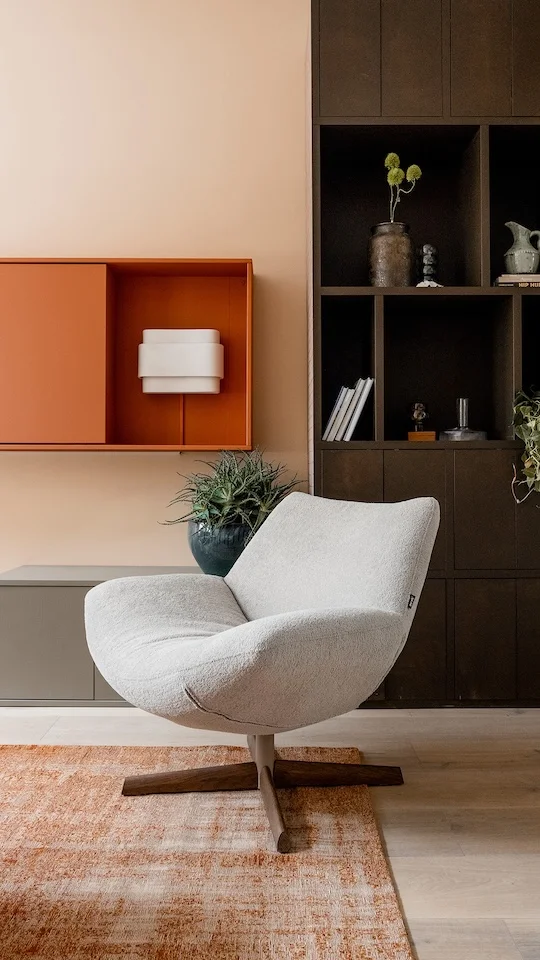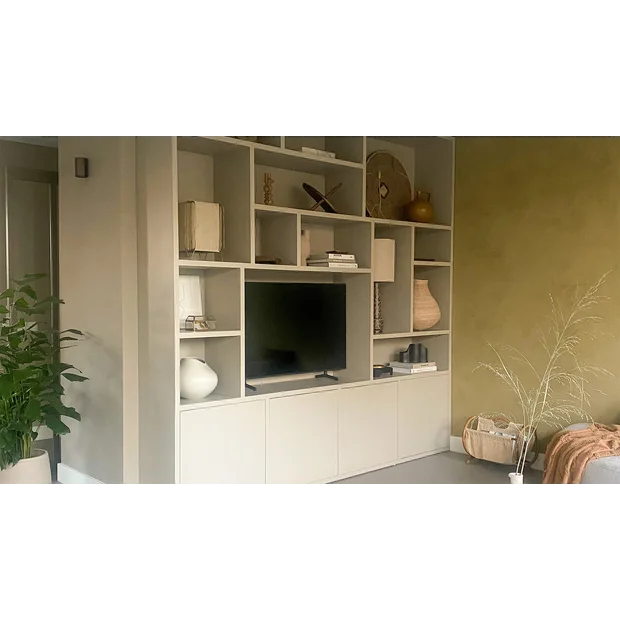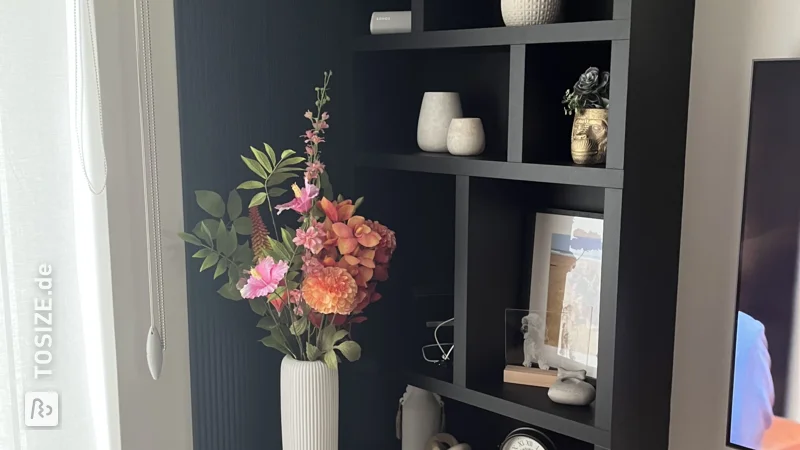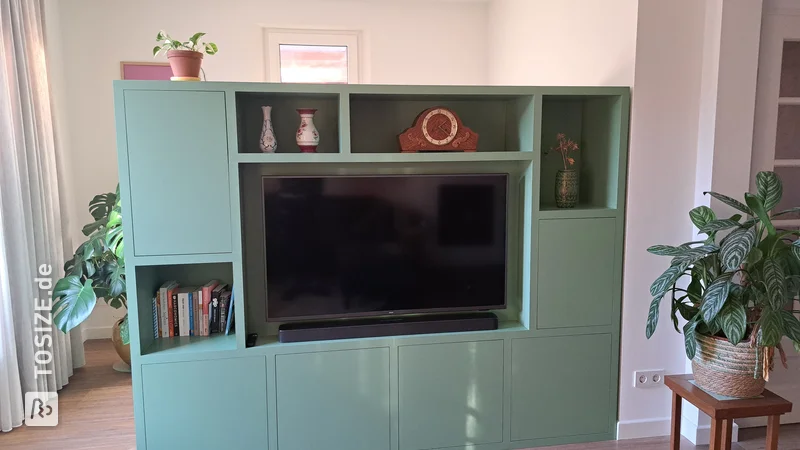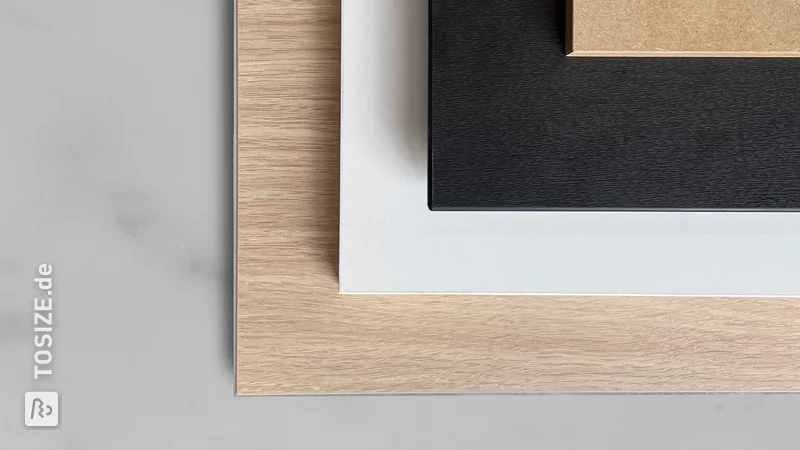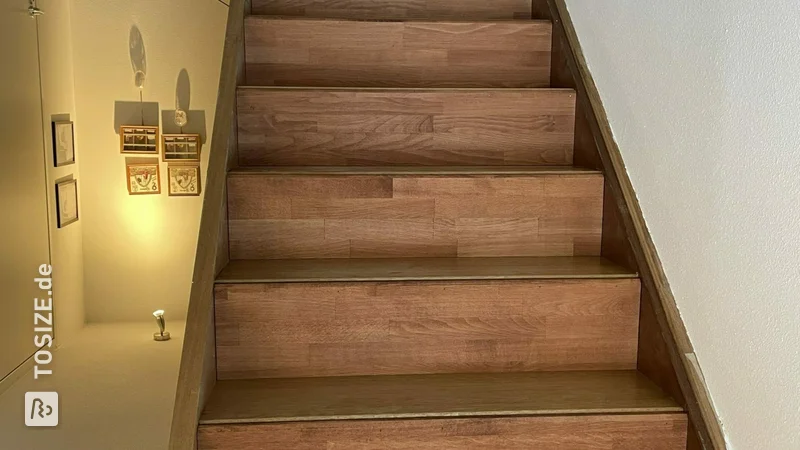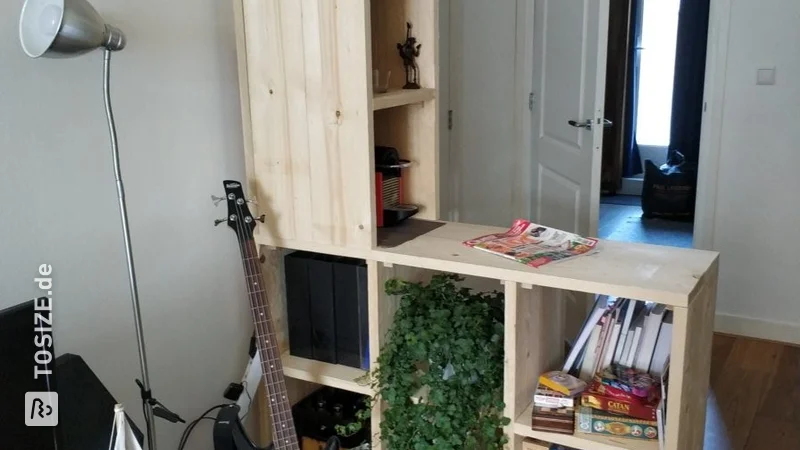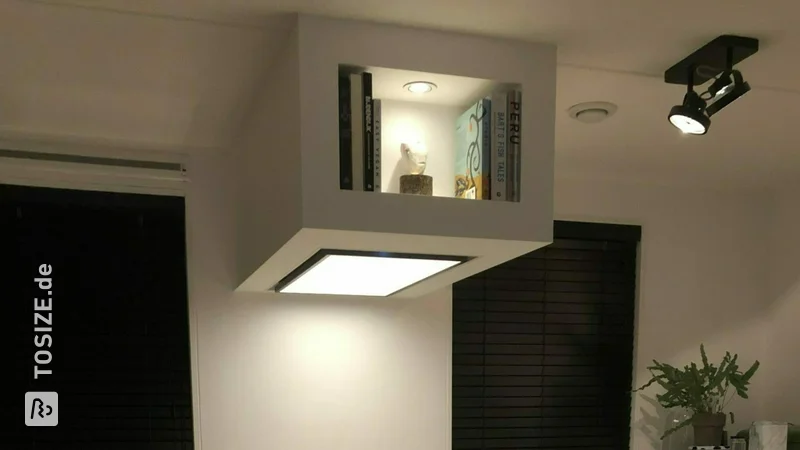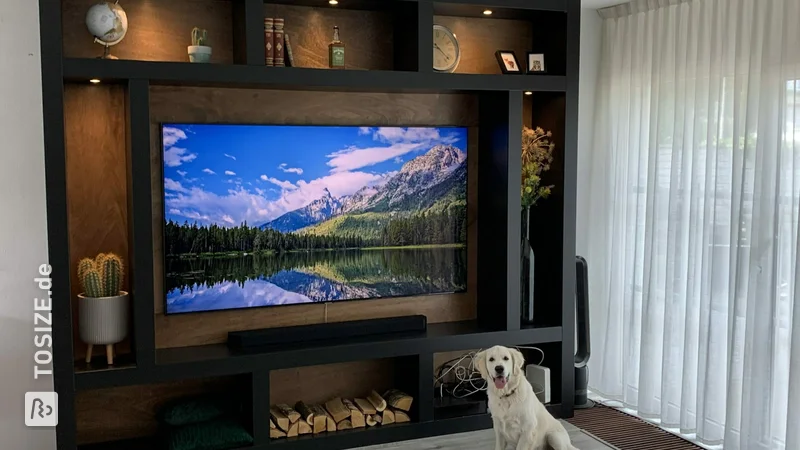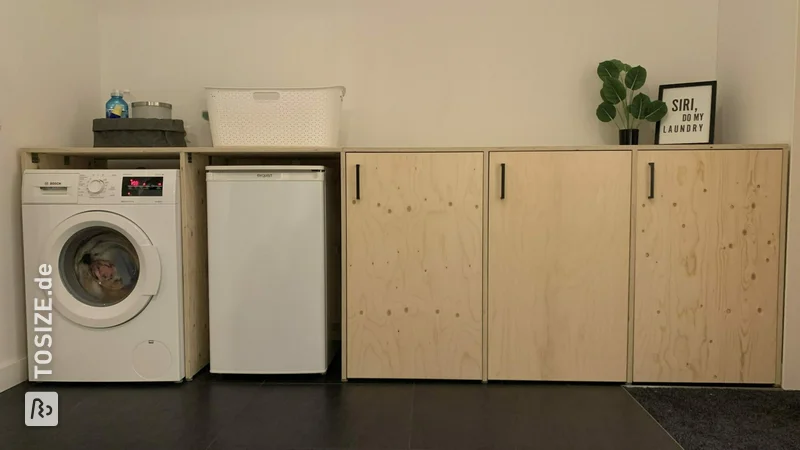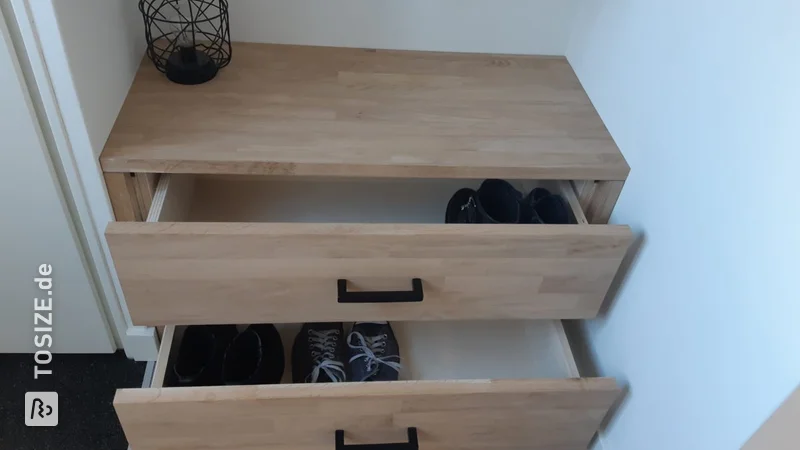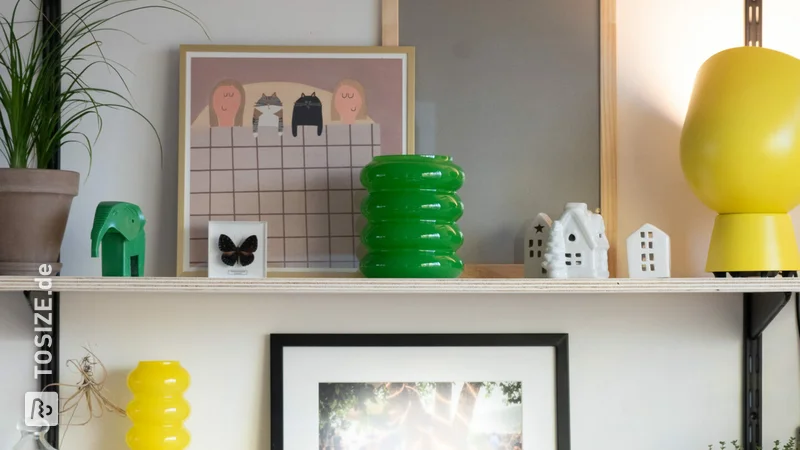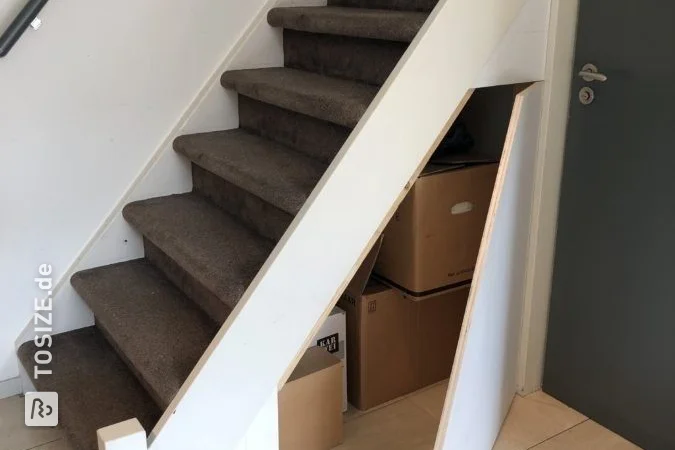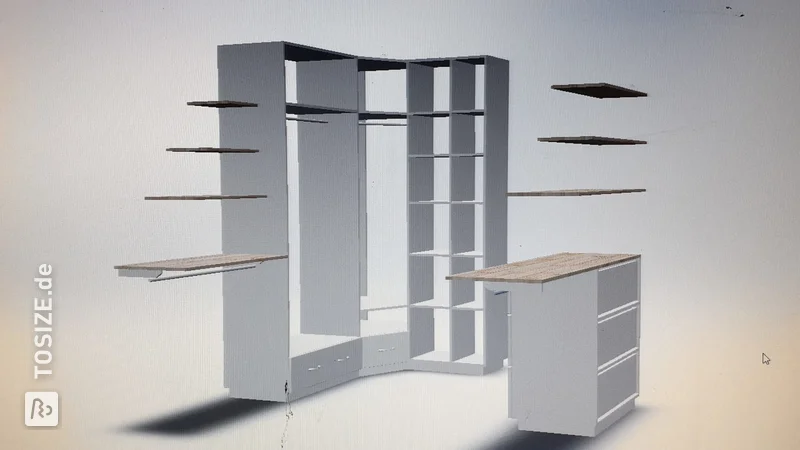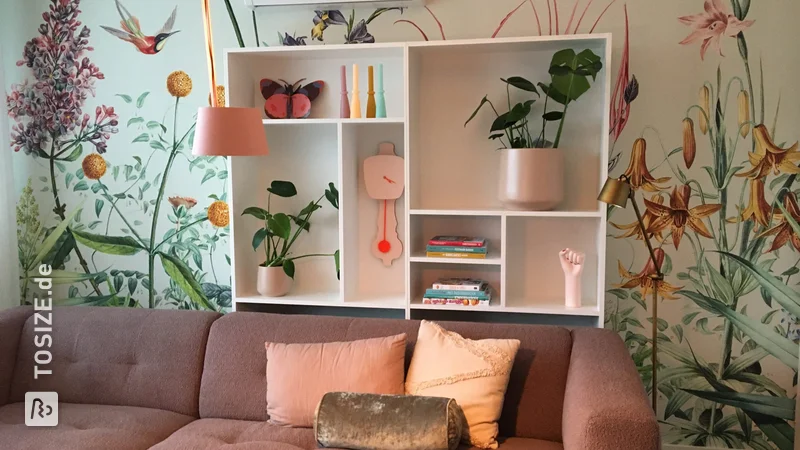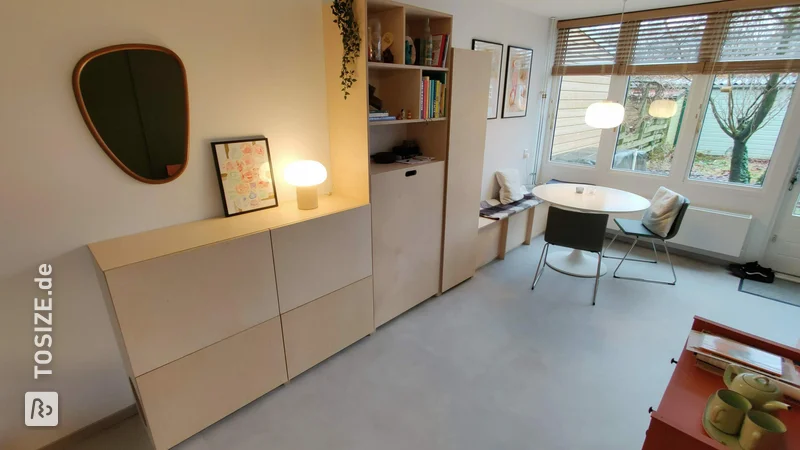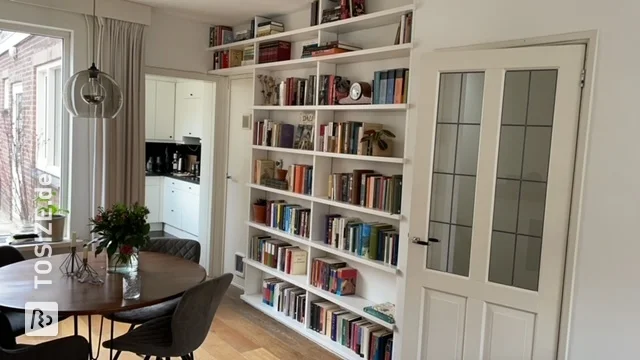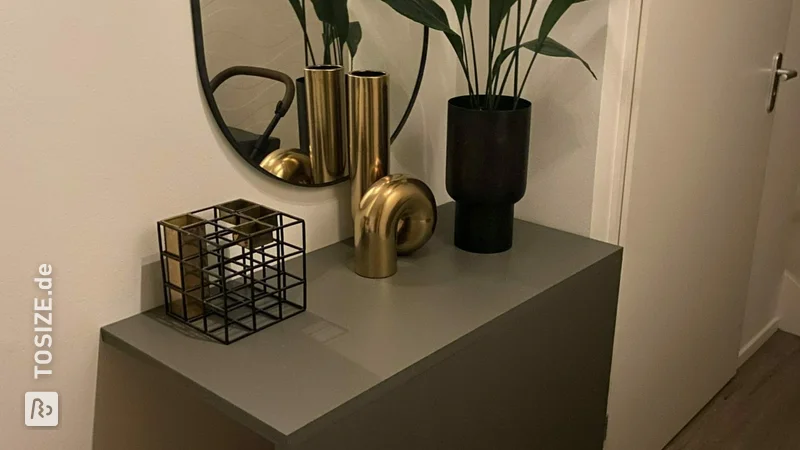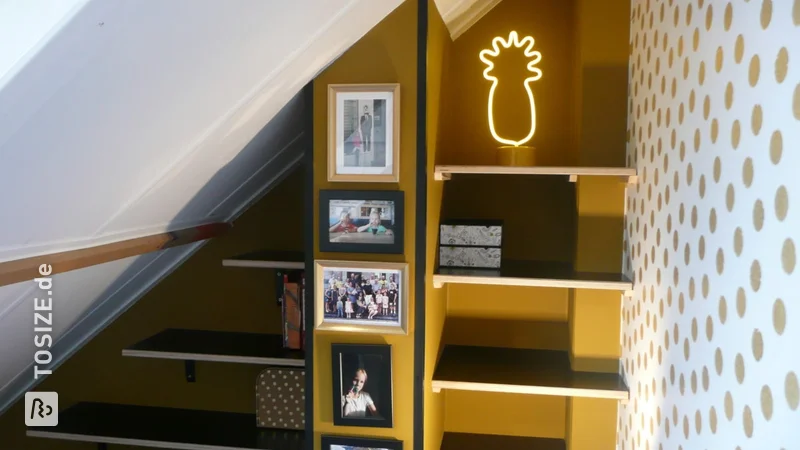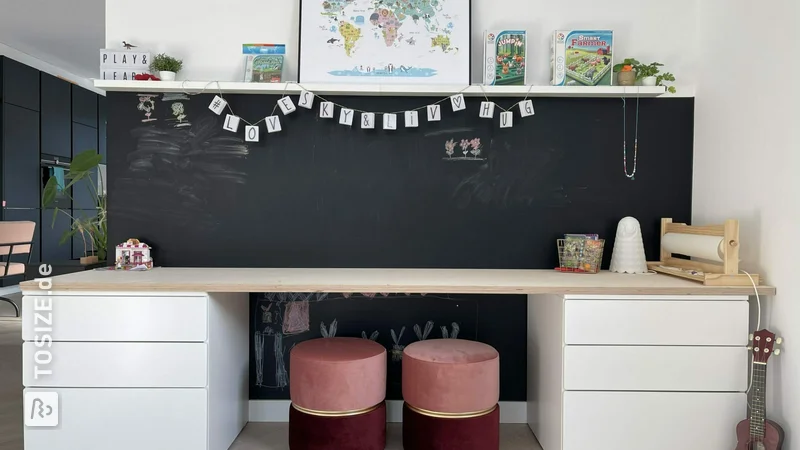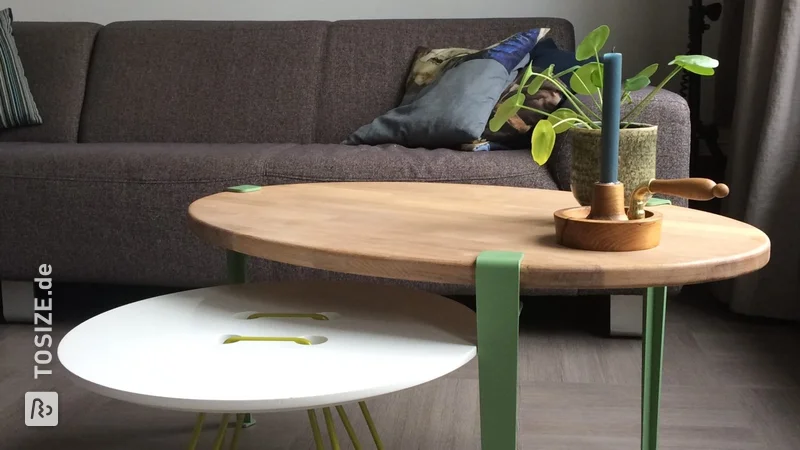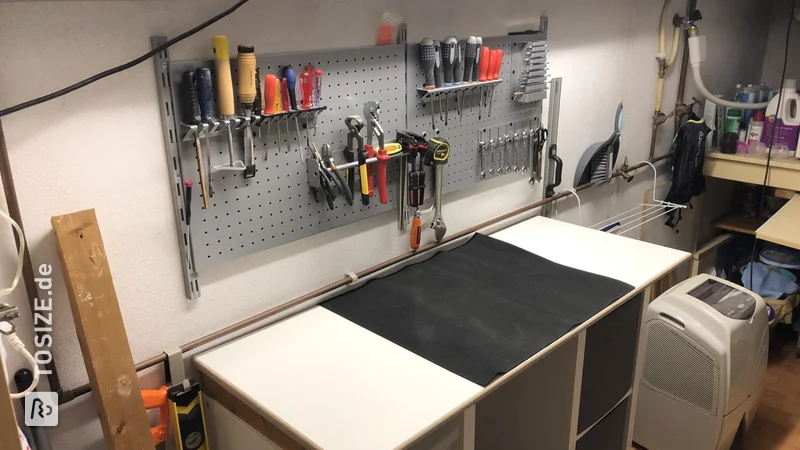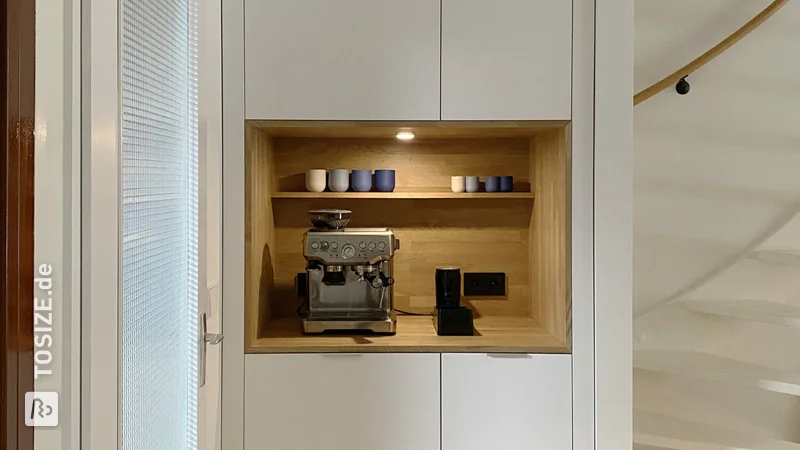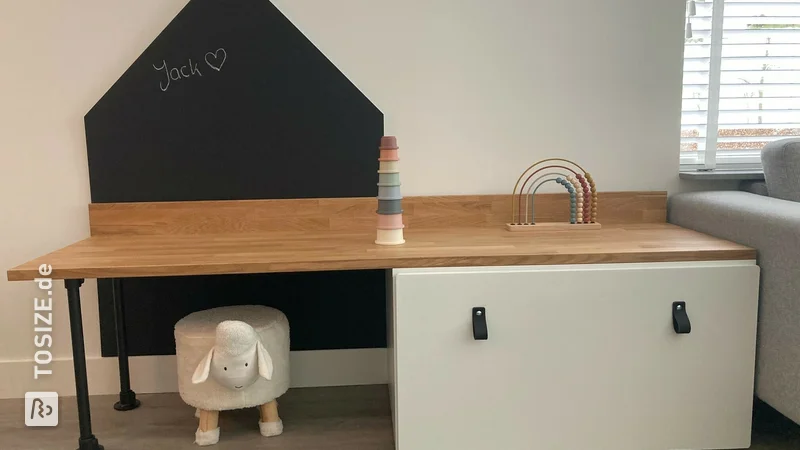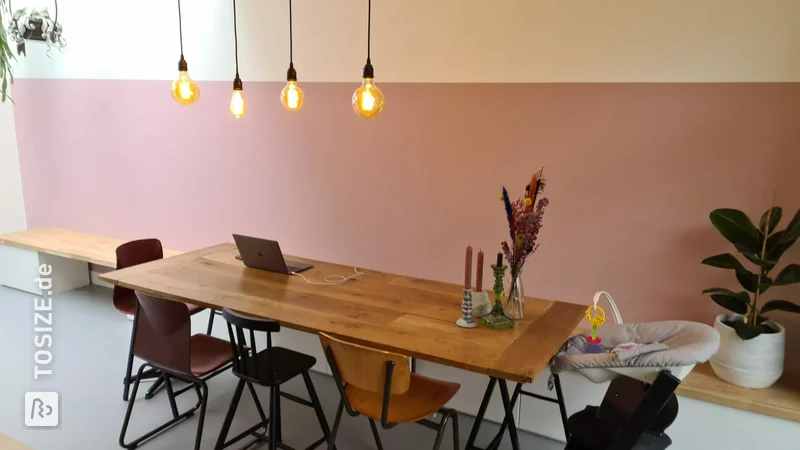How do I paint my TOSIZE Furniture cabinet?
Yes! You're (interested in) a TOSIZE Furniture brand compartment cabinet from TOSIZE.de. But how does it work if you still need to finish it yourself? Read all our tips in this article!
Materials
Furniture panel
When you choose furniture panel (in white, black oak or natural oak), the material itself is already finished and you don't have to paint the furniture yourself. Just put it together! That's really convenient. We finish the end edges with an ABS band. This is a plastic band in the same colour, so the edges are protected against knocks and have a neat finish.
Can you paint furniture panel?
Furniture panel is finished with a plastic top layer. This is made so that it is already completely finished and you don't have to paint it. Unlike unfinished wood, which is made for painting. Is it really not possible? In theory, of course, anything is possible. Are you going to try it? Then you need a bit more preparation. In any case, a good adhesive primer is an important step. As for the end result, there is a big chance that the paint layer will scratch a bit sooner. Make sure that the paint you use is suitable for plastic and, if in doubt, always get expert advice!
Finishing with sealant is also tricky with furniture panel. It will always be a challenge to find exactly the right colour and fill the seams and cracks without it showing. We therefore do not recommend using sealant to fill seams and cracks in a furniture panel cupboard (nor do we think it's optically necessary at all! See here examples).
MDF
If you choose MDF Natural or MDF Primed, you can paint the cabinet in any colour you want. It's best to paint the cabinet after you have assembled it. This saves a lot of space to lay out all the panels and it prevents you from getting any damage while assembling the cupboard anyway. And extra handy: you can fill any unevenness or seams with filler or sealant beforehand to make it even tighter. And the best thing about MDF: you can let all your creativity run wild! You can also finish this material with concrete plaster, wallpaper or lime paint. What will you choose?
MDF Natural or Primed
Actually, the name says it all: natural MDF is completely untreated. If you want to paint it, it is important to apply primer first. The material is highly absorbent and by first treating it, the coating covers better. The best result is achieved by applying 2 layers of primer and 2 layers of lacquer. With primed MDF, this primer is already applied and you can immediately start applying the right colour lacquer. The primer is white. Depending on the colour you are going to apply, you usually need two coats to get a nice coverage. With very bright or dark colours, a third coat might make it just a little tighter.
Primer band
The end edges of MDF have a strong, absorbent effect. To avoid having to pretreat the end edges first, we finish these edges with a primer band. In this way, the end edges are already primed, as it were, and you can skip the pre-treatment. Handy, isn't it?
MDF Finishing
Before painting, you can choose to finish the cupboard with putty or sealant. In our opinion, it is usually not necessary to do this, but sometimes you want an extra tight finish. You can then choose to finish the seams on the inside or outside of the compartments with sealant or putty. It doesn't really matter which of the two options you use, they both have advantages and disadvantages. Putty is a bit more prone to cracking when the material starts to work. But you can use it to seal seams nicely and evenly. Filler is also often a better choice for unevenness caused by damage, for example. Putty has the advantage that it remains elastic, making it less susceptible to cracks when the material starts to work. The disadvantage is that it sags faster, making it difficult to fill the seams properly. On the inside of compartments, sealant is the right option, because filling up inside corners is very difficult.
Do you opt for sealant? Then make sure you take acrylic sealant. This is paintable.
MDF Painting
So the first step is to assemble the cabinet. If you are going to paint plain MDF, it is important to degrease it well first. Don't do this too wet, because then you risk the material sucking up the moisture. Then lightly sand the material and you can start with the first primer. MDF has an absorbent effect, so priming is definitely recommended first! You can already have the primer (or primer) mixed in the right colour. This is often not much more expensive than standard white and already gives good coverage in the right colour.
Check whether the first layer of primer has covered well when dry. If not? Then apply a second coat of primer. If it does? Then you can already start painting. Lightly sand the cabinet again before applying the lacquer. This ensures a nice smooth result. With one or two coats of lacquer, you usually have a nicely covered cupboard. It is also nice to sand lightly between coats of lacquer (maximum 180-grit paper, but preferably finer).
Type of paint
You can use normal wood paint and primer/primer for indoor use. This paint is water-based (acrylic). There are many differences in quality of paint brands and materials to paint with. Experience shows that it is often better to buy more expensive materials and paint. This gives better coverage, so you need to apply fewer layers and the end result will be tighter. Want to read more painting tips? Then read the tips in dit blog.
Good luck!
Good luck with building and possibly finishing your bespoke shelving unit! Are you still in the design process? We are extremely curious to see the final result. Will you share it with us? You can use the link in the order confirmation. We will then post it directly on our DIY blog and you will also receive a nice thank-you gift!
